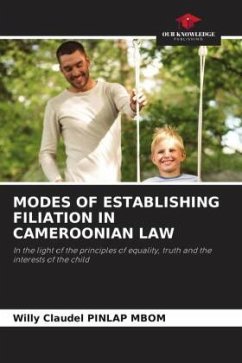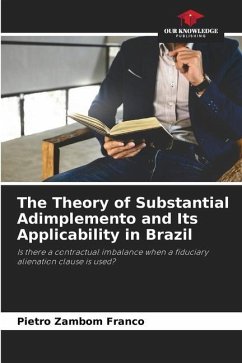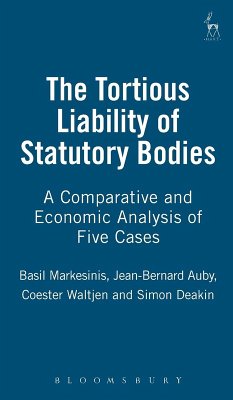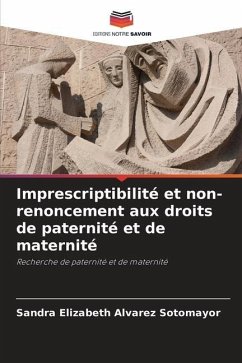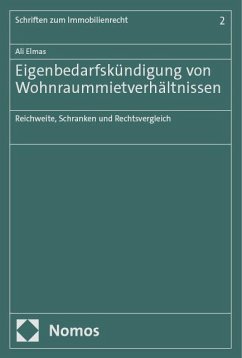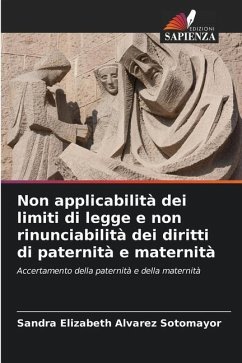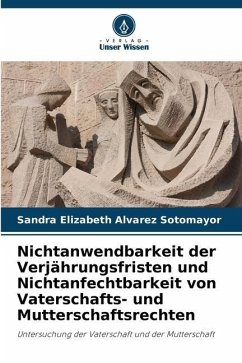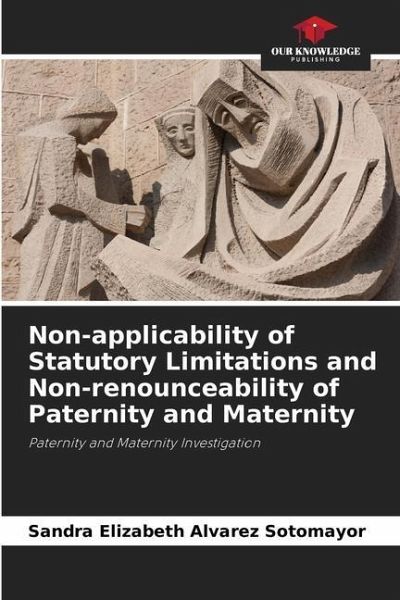
Non-applicability of Statutory Limitations and Non-renounceability of Paternity and Maternity
Paternity and Maternity Investigation
Versandkostenfrei!
Versandfertig in 6-10 Tagen
36,99 €
inkl. MwSt.

PAYBACK Punkte
18 °P sammeln!
We must understand that the right to filiation is constitutionally an imprescriptible right, since identity is neither acquired nor lost by the passage of time, which derives as a natural consequence that the action of investigation of paternity and maternity is also imprescriptible, and as it is generally known, maternity has been considered as an indisputable fact and is presumed by the fact of a mere birth, Maternity has been considered as an indisputable fact and is presumed by the mere fact of birth, while paternity has been considered as an act of faith, that is to say, if the child is b...
We must understand that the right to filiation is constitutionally an imprescriptible right, since identity is neither acquired nor lost by the passage of time, which derives as a natural consequence that the action of investigation of paternity and maternity is also imprescriptible, and as it is generally known, maternity has been considered as an indisputable fact and is presumed by the fact of a mere birth, Maternity has been considered as an indisputable fact and is presumed by the mere fact of birth, while paternity has been considered as an act of faith, that is to say, if the child is born under legal marriage, paternity is presumed, but when there is no marriage bond, it is not legally possible to presume paternity. With the action of paternity he seeks to achieve the concrete position or quality in the bosom of the family that belongs to him. Therefore, it is true that paternity and filiation has been one of the most delicate matters of the private law, which has always differentiated the legitimate ones, which are those born in a regular marriage, from the illegitimate ones, which are those born in irregular unions. Once these different situations are approved, the children have the right to bear the surname of their parents.



